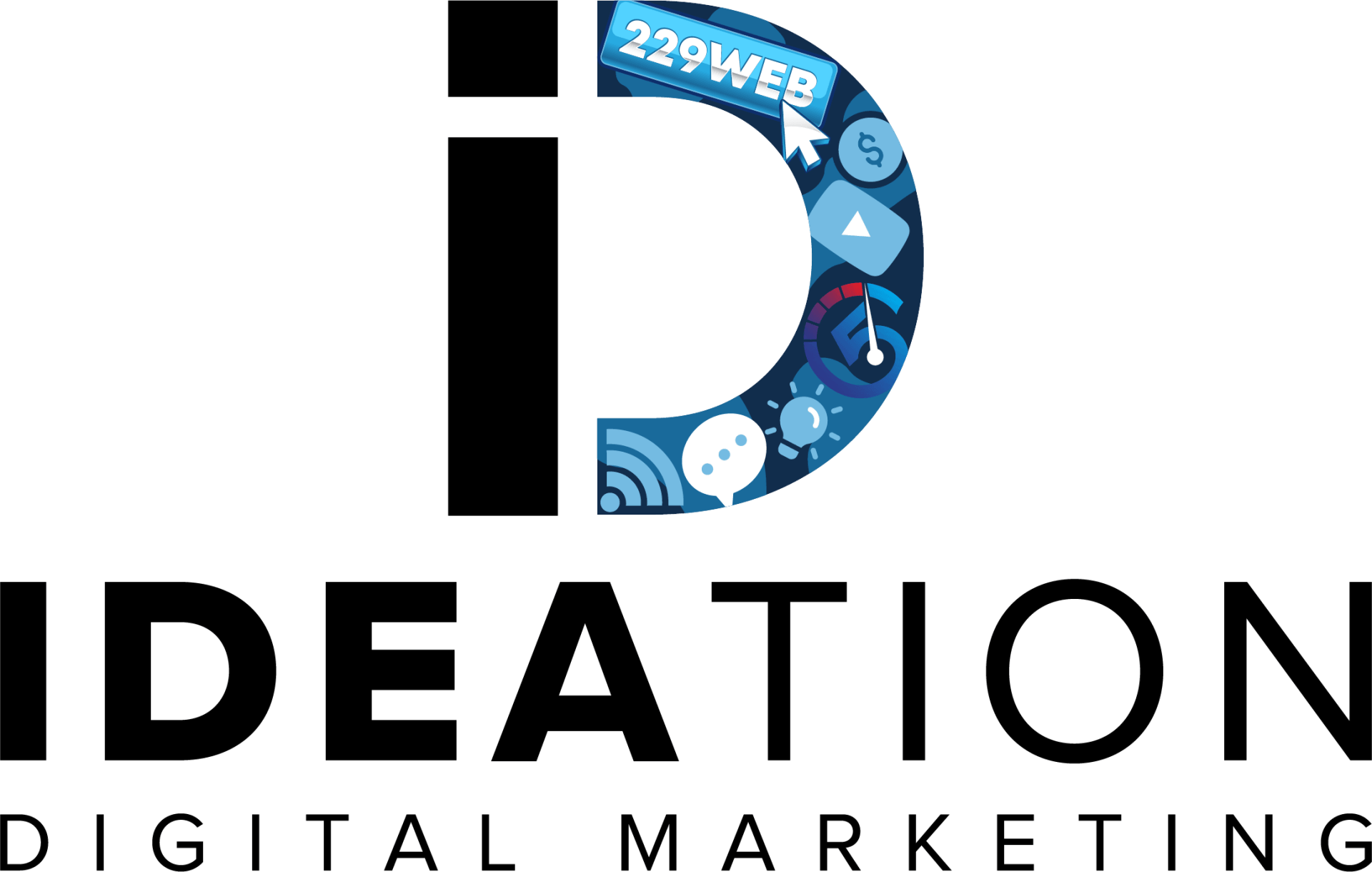222 Capitol Street, Suite 522
Charleston, WV 25301

Personalization in Digital Marketing: Tailoring Experiences for Customers
In the vast realm of digital marketing, one strategy stands out as paramount: personalization. In a landscape inundated with content and advertisements, tailoring experiences for customers has become not just a competitive advantage but a necessity. From targeted emails to customized product recommendations, businesses are harnessing the power of personalization to forge deeper connections and drive conversions. In this blog, we delve into the intricacies of personalization in digital marketing, exploring its significance, methods, and impact on customer engagement and brand loyalty. Join us as we unravel the secrets behind crafting tailored experiences that resonate with individuals on a personal level, fostering meaningful interactions that transcend the digital divide. Whether you're a seasoned marketer or just dipping your toes into the digital waters, understanding the nuances of personalization is crucial for navigating today's dynamic marketing landscape. Let's embark on this journey together and unlock the potential of personalization in transforming your digital marketing strategies.
Leveraging Insights for Effective Marketing

In today's digital age, data has become the cornerstone of effective marketing strategies. By leveraging insights gleaned from customer interactions, behaviors, and preferences, businesses can create targeted and personalized marketing campaigns that resonate with their audience. In this article, we'll explore the art of data-driven marketing and how businesses can harness insights to drive successful marketing initiatives.
Understanding the Power of Data
Data serves as the foundation upon which effective marketing strategies are built. Every interaction a customer has with a brand generates valuable data points that can offer insights into their preferences, purchasing habits, and engagement levels. By collecting and analyzing this data, businesses can gain a deeper understanding of their audience, allowing them to tailor their marketing efforts accordingly.
Collecting Actionable Insights
The first step in leveraging insights for effective marketing is collecting actionable data. This involves implementing tools and systems to capture relevant information at various touch points along the customer journey. From website analytics and social media monitoring to customer surveys and purchase history, there are numerous sources of data that businesses can tap into to gain insights into their audience.
Analyzing and Interpreting Data
Once data has been collected, the next step is to analyze and interpret it to extract meaningful insights. This often involves using data analytics tools and techniques to identify patterns, trends, and correlations within the data. By segmenting their audience based on demographic, behavioral, and psychographic factors, businesses can gain a deeper understanding of their customers' preferences and needs.
Creating Targeted Marketing Campaigns
Armed with insights derived from data analysis, businesses can create targeted marketing campaigns designed to resonate with specific audience segments. By delivering personalized content, offers, and recommendations, businesses can increase the relevance and effectiveness of their marketing efforts, ultimately driving higher engagement and conversion rates.
Optimizing Performance Through Continuous Improvement
Data-driven marketing is an iterative process that requires ongoing monitoring and optimization. By tracking key metrics such as click-through rates, conversion rates, and customer lifetime value, businesses can gauge the effectiveness of their marketing campaigns and make adjustments as needed to improve performance over time.
Overcoming Challenges in Personalization: Balancing Privacy and Personalization

In today's digital landscape, personalization has become a cornerstone of effective marketing strategies. Tailoring experiences to individual preferences and behaviors can significantly enhance customer engagement, drive conversions, and foster brand loyalty. However, amid growing concerns about data privacy and security, marketers face the challenge of striking the right balance between delivering personalized experiences and respecting customer privacy.
The Importance of Personalization
Personalization is more than just a buzzword; it's a fundamental aspect of modern marketing. By leveraging customer data and insights, businesses can create tailored experiences that resonate with their audience on a deeper level. Whether it's personalized product recommendations, targeted email campaigns, or customized website content, personalization allows brands to cut through the noise and deliver messages that are relevant and timely.
The Challenge of Privacy
At the heart of the personalization dilemma lies the issue of privacy. In an era marked by high-profile data breaches and increased scrutiny over how companies handle consumer information, individuals are understandably cautious about sharing personal data with businesses. Marketers must navigate this delicate balance, ensuring that they collect and use customer data responsibly and transparently.
Transparency and Consent
One of the key principles of ethical personalization is transparency. Customers should have a clear understanding of how their data is being collected, stored, and utilized. This includes being upfront about the types of information being collected, the purposes for which it will be used, and the security measures in place to protect it. Additionally, obtaining explicit consent from customers before utilizing their data for personalization purposes is essential.
Data Protection and Security
Safeguarding customer data is paramount in maintaining trust and credibility. Marketers must implement robust data protection measures to prevent unauthorized access, data breaches, and misuse of personal information. This may involve encrypting sensitive data, implementing multi-factor authentication, and regularly auditing security protocols to identify and address vulnerabilities.
Anonymization and Aggregation
To mitigate privacy concerns, marketers can employ techniques such as anonymization and data aggregation. Anonymizing personally
identifiable information (PII) removes individual identifiers from data sets, protecting customer privacy while still allowing for meaningful analysis. Similarly, aggregating data at a group level can provide valuable insights for personalization without compromising individual privacy.
Personalization Techniques That Drive Customer Engagement and Loyalty
In today's highly competitive digital landscape, engaging customers and fostering loyalty are paramount for businesses seeking sustained success. One of the most effective strategies for achieving these goals is through personalized marketing techniques. By tailoring experiences to individual preferences, behaviors, and interests, businesses can create meaningful connections with customers and cultivate long-term relationships. Let's delve into some key personalization techniques that drive customer engagement and loyalty:
- Dynamic Content: Dynamic content allows marketers to tailor website experiences based on individual user attributes such as demographics, browsing history, and past interactions. By dynamically adjusting website elements such as headlines, images, and calls-to-action, businesses can create a personalized browsing experience that resonates with each visitor.
- Product Recommendations: Utilizing algorithms based on purchase history, browsing behavior, and demographic information, businesses can provide personalized product recommendations to customers. Whether through on-site product recommendations, email campaigns, or targeted advertisements, recommending relevant products enhances the shopping experience, increases conversion rates, and encourages repeat purchases.
- Personalized Email Marketing: Email remains a powerful tool for engaging customers, and personalization can significantly enhance its effectiveness. By segmenting email lists based on customer attributes and behaviors, businesses can deliver highly targeted and relevant content, including product recommendations, special offers, and personalized messaging tailored to individual interests and preferences.
- Behavioral Targeting: Behavioral targeting involves analyzing user behavior across various digital touchpoints to deliver personalized content and advertisements. By understanding how customers interact with websites, social media platforms, and other online channels, businesses can serve targeted content that aligns with their interests and needs, increasing engagement and driving conversions.
- Location-Based Personalization: Leveraging location data enables businesses to deliver personalized experiences based on a user's geographic location. Whether through targeted promotions for local events, personalized recommendations for nearby stores or attractions, or location-specific content, businesses can enhance relevance and drive engagement by catering to users' specific locations and contexts.
Conclusion
Ideation Digital Marketing, we recognize the paramount importance of personalization in digital marketing to enhance customer experiences. By tailoring our strategies to meet the unique needs and preferences of each individual, we aim to foster deeper connections and loyalty with our clientele. Through utilizing innovative techniques and leveraging cutting-edge technologies, such as data analytics and artificial intelligence, we strive to deliver targeted and relevant content that resonates with our audience in Charleston, WV, and beyond. Our commitment to personalization ensures that we remain at the forefront of delivering impactful and engaging digital marketing solutions that drive tangible results for our clients.

Main Office
222 Capitol Street, Suite 522
Charleston, WV 25301
other offices
48 1/2 Second Ave, Williamson, WV 25661
20 Clinch Mountain Ave, Lebanon, VA 24266,
Contact
DIGITAL MARKETING SERVICES
All Rights Reserved | Ideation Digital
Private Policy
All Rights Reserved | Ideation Digital












